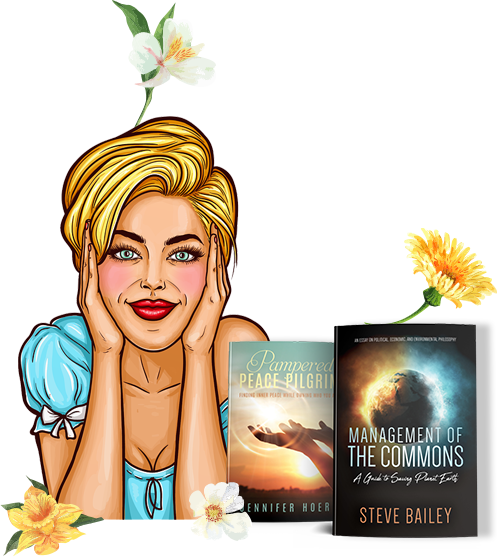
Strong verbs are indispensable tools for authors, empowering them to craft vibrant, animated, and captivating narratives. These verbs effectively communicate explicit actions or feelings, so improving the clarity and effectiveness of your writing. By 2024, acquiring expertise in employing powerful verbs can greatly enhance your ability to craft compelling narratives, write impactful essays, and even produce engaging news pieces. This essay will explore the concept of strong verbs, present an extensive compilation, and examine their advantages and uses in diverse writing scenarios.
Table of Contents
ToggleWhat Are Strong Verbs for Writing?
Powerful verbs are precise and evocative, creating a strong mental image for the reader. Frequently, they substitute feeble, less specific verbs in order to enhance the quality and accuracy of writing. As an illustration, rather of stating “He walked slowly,” you may express “He trudged,” which not only communicates the action but also expresses the attitude and exertion required. These verbs enhance readers’ ability to mentally picture scenes with more clarity, thus intensifying the immersive and profound impact of the text.
Characteristics of Strong Verbs
Strong verbs are well-known for their precision, providing unambiguous and exact acts that allow minimal space for misunderstanding. Contrary to weak verbs, which sometimes need extra modifiers to express a complete notion, strong verbs can stand alone and offer a detailed portrayal of the action. For example, the verb “trudge” not only signifies walking, but also implies walking with difficulty and exertion, so promptly creating a more vivid image for the reader. This level of clarity serves to eliminate any ambiguity and guarantees that the reader comprehends the desired action or emotion completely.
Descriptive power
The descriptive power of powerful verbs is one of their most compelling properties. These verbs enhance descriptions, allowing readers to create more vivid mental images of scenes. By selecting verbs such as “illuminate” rather than “light up,” writers have the ability to craft a more evocative and intricate mental image for the reader. This improves the whole reading experience, creating a more engaging narrative. Powerful verbs enhance plain statements into elaborate, descriptive passages that engage and maintain the reader’s focus.
Emotional resonance
Strong verbs are very potent in expressing emotions, imbuing the narrative with an emotional depth that feeble verbs frequently lack. Verbs like “quiver” or “wail” possess inherent emotional significance, instantly evoking sensations of anxiety or grief without requiring further clarifications. The capacity to elicit emotions directly through the selection of verbs enhances the effectiveness and relatability of the writing, enabling readers to establish a profound connection with the characters and situations.
Pragmatic
Strong verbs are fundamentally action-oriented, prioritising movement and activity, resulting in a more dynamic and captivating narrative. The characters infuse vitality into the narrative, moving the plot and engaging the reader. As an illustration, the word “pounce” is far more energetic than “jump,” as it not only describes the physical movement but also implies a heightened level of urgency and purpose. This emphasis on action contributes to the development of a dynamic and captivating storyline, brimming with energy and thrill.
What Are 20 Strong Verbs?
To demonstrate the potency of robust verbs, presented below is a compilation of 20 instances that can infuse vitality into your writing:
- Dash refers to the act of moving rapidly or swiftly.
- Devour – to consume voraciously.
- Eavesdrop refers to the act of clandestinely listening to a discussion.
- Engage – to actively participate.
- Envelop is to entirely encircle.
- Explode – to rupture or explode violently due to internal pressure or energy release.
- Flicker refers to the act of emitting a fluctuating light.
- Gaze refers to the act of looking steadily and intently.
- Glare – to fixate with an intense and hostile gaze.
- Gobble – to consume food quickly and voraciously.
- Illuminate means to provide light or make something visible by lighting it up.
- Ignite – to undergo combustion and produce flames.
- Mimic means to replicate or copy the actions, behaviour, or appearance of someone or something else.
- Pounce – to abruptly leap or attack.
- Quiver – to experience minor trembling.
- Slink – to move stealthily and noiselessly with graceful strides.
- Soar means to ascend or fly at a great height in the atmosphere.
- Swerve – to abruptly alter one’s course.
- Trudge is to go slowly and laboriously, taking heavy steps.
- Wail – to emit a loud and sorrowful wail.
Each of these verbs not only denotes an action but also imparts more context, such as emotion, intensity, or manner of movement.
How Many Strong Verbs Are There?
The English language boasts a huge array of powerful verbs, numbering in the hundreds. Extensive compilations typically consist of 200 to 500 potent verbs, offering writers a wide range of choices to select from depending on the desired context and nuance they want to communicate. Notably, resources such as Jerry Jenkins’ compilation of 273 powerful verbs or the BookBird’s comprehensive assortment of more than 444 verbs serve as exceptional initial references.
What Are the Powerful Verbs for Essays?
- Strong verbs are extremely effective in essays, especially ones that demand persuasive or analytical writing, as they enhance the power and persuasiveness of your ideas. Below are many strong verbs frequently employed in essays:
- Assert means to express a statement with confidence.
- Contend is to engage in an argument or challenge.
- Demonstrate is to clearly exhibit or illustrate something.
- Elucidate means to clarify or make something plain.
- Examine means to thoroughly inspect or scrutinise anything.
- Highlight is to place emphasis on something.
- Propose – to put forward a suggestion or recommendation.
- Refute means to provide evidence or arguments that prove a statement or claim to be false or incorrect.
- Underscore is a typographical symbol used to underline or emphasize
- Validate – to verify or authenticate.
These verbs are especially valuable in academic writing, where the utmost importance is placed on clarity, precision, and persuasiveness. They contribute to the logical and persuasive presentation of points, so improving the overall quality of the essay.
What Are Strong Verbs Used in News Writing?
Strong verbs are essential in news writing to craft captivating and succinct reports. They facilitate the clear and dynamic communication of actions. Below is a list of potent verbs frequently employed in news writing:
- Accuse means to formally charge someone with a fault or offence.
- Acknowledge means to accept or recognise the truth of something.
- Blast – to vehemently criticise or condemn.
- Claim – to affirm notwithstanding the potential for contradiction.
- Collide – to meet forcefully or crash into each other.
- Confirm means to validate or authenticate.
- Demand – to assertively request or need.
- Expand – to enlarge or grow in size.
- Investigate is to conduct a comprehensive examination or inquiry.
- Reveal – to disclose or make something known.
These verbs not only offer explicit descriptions but also imbue a sense of urgency and significance to the news pieces, so ensuring that readers are well-informed and captivated.
The Wrap up
Strong verbs are essential for crafting captivating and unforgettable literature. By using specific and vibrant verbs, you can elevate the quality of your storytelling, academic writings, and news pieces, so increasing their level of engagement and influence. In 2024, authors can easily achieve and much benefit from learning the use of powerful verbs by utilizing a wide range of resources, including comprehensive verb lists and writing guides.





